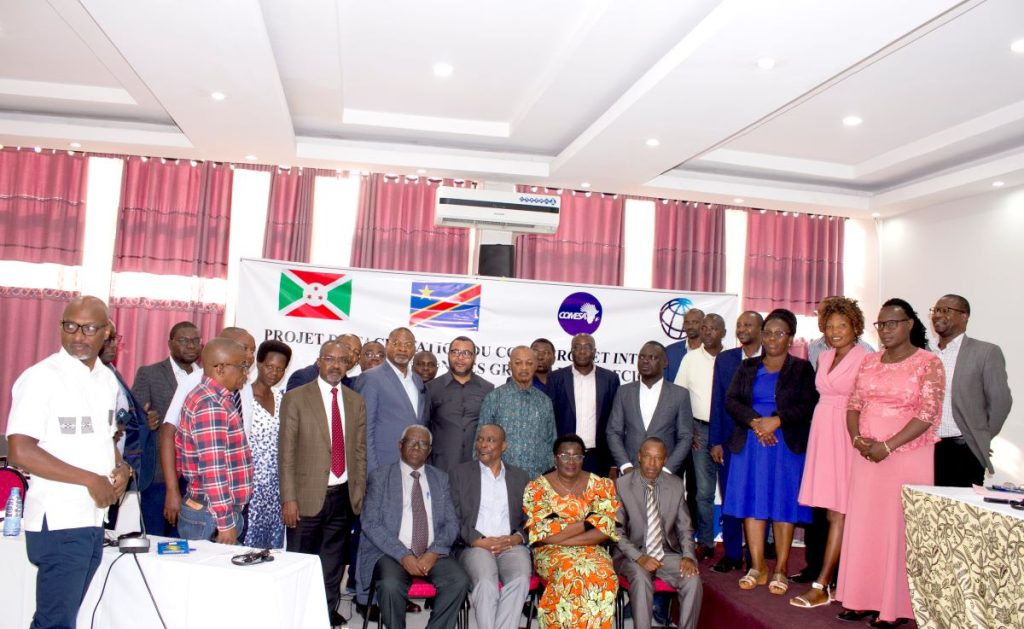
Small-scale cross-border traders between Burundi and the Democratic Republic of Congo have agreed on Terms of Reference (TORs) that will pave the way for the establishment of Joint Border Committees. These committees will assist in making trade faster, safer, and cheaper across the border.
The implementation of the JBCs is in line with the Bilateral Trade Agreement between Burundi and the DRC signed in April 2022.
With support from the Great Lakes Trade Facilitation and Integration Project (GLTFIP) financed by the World Bank, COMESA convened a three-day technical meeting from 26 to 28 March 2024 in Burundi to assist the two member states in setting up JBCs along their common borders.
GLTFP Coordinator Mr. Adrien Ndayisaba said the two countries negotiated and agreed on the TORs for establishing, managing, and governing JBCs, including their sustainability beyond the project life. During the Bujumbura meeting, the delegates also developed a joint roadmap for the implementation of the JBCs, which are a practical way of implementing the Coordinated Border Management (CBM) concept.
Currently, tradable commodities, particularly agricultural products, face various regulations, leading to multiple inspections and other controls by border agencies. The meeting noted that the uncoordinated application of these regulations and controls often frustrates the seamless flow of trade across borders, making small-scale cross-border trade costly and risky.
“With JBCs, SSCBT in the Great Lakes region will never be the same. JBCs will be a strong pillar for the implementation of the Simplified Trade Regime between the two countries, which is scheduled to be launched in the second quarter of the year,” Mr. Ndayisaba said.
Besides creating a platform for dealing with Non-Tariff Barriers (NTBs), the JBCs provide alternatives for grievance redress mechanisms for cases of abuse and harassment of women and youth in trade, including gender-based violence. Furthermore, JBCs foster social integration, and the resultant cooperation makes small-scale cross-border trade safer, cheaper, and faster.
Representatives from Burundi and the DRC, drawn from Ministries in charge of Trade, Finance, Agriculture, and Health, border agencies, Central Statistics Offices, and Cross-border Traders’ Associations, attended the meeting.

